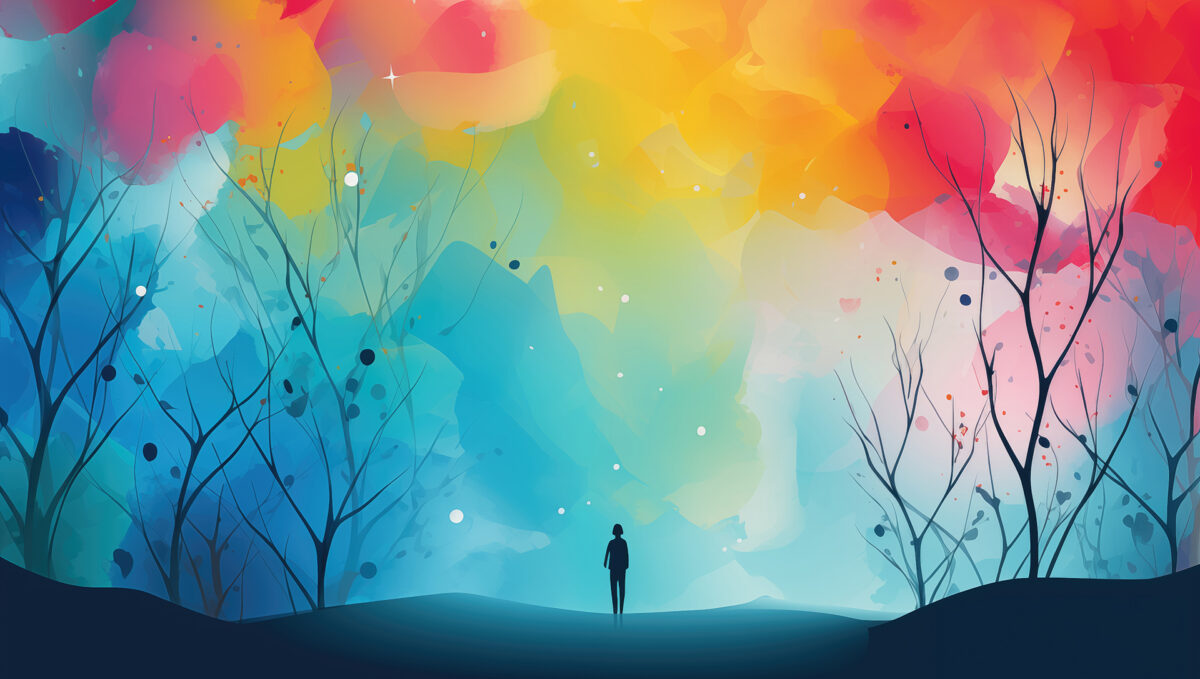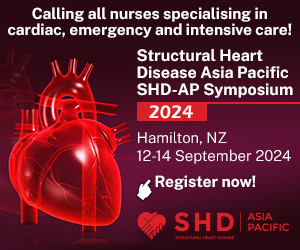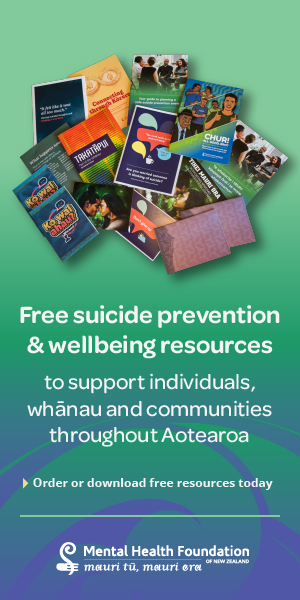Disclaimer/warning: The writer does not represent any group or workplace, this is their own personal lived experience. It contains suicide ideation and other things that some may find upsetting.
Everything I heard about gay and transgender people as a child and teenager were messages that it is wrong, sinful, gross, disgusting, abnormal, sick and these people should be shunned to the dark corners of society.
For many rainbow people (rainbow is an umbrella term for lesbian, gay, bisexual, trans, takatāpui, queer, intersex and other LGBTTQI+ people), negative experiences can start in childhood — often before the person even knows they are part of that community.
It can start with hearing homophobic and/or transphobic comments. I heard these at school, in sports teams, on TV and at home.
Everything I heard about gay and transgender people as a child and teenager were messages that it is wrong, sinful, gross, disgusting, abnormal, sick and these people should be shunned to the dark corners of society.
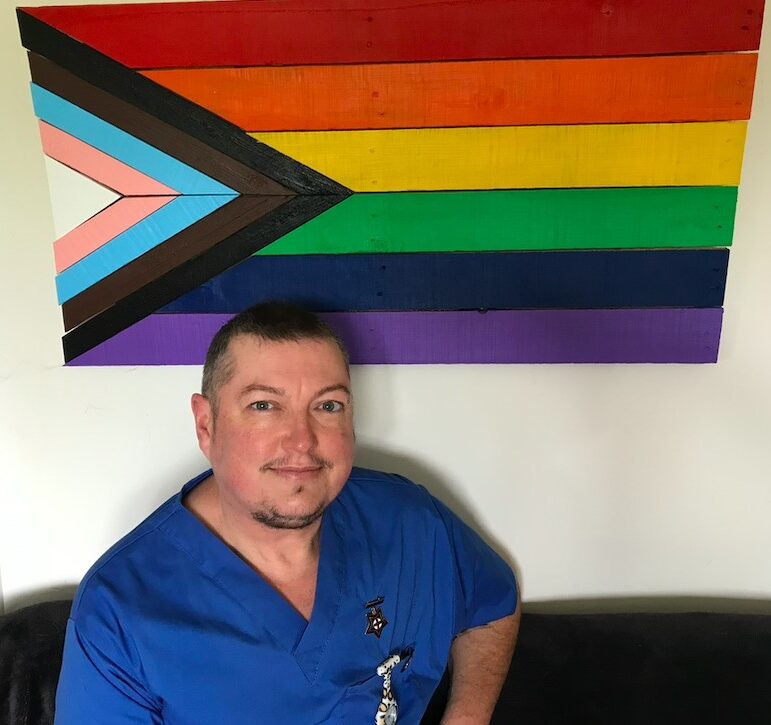
At some point, these things — or least some of them — become “I” statements in one’s internal dialogue, even at a subconscious level: “I am wrong”, “I am sick” etc. This is called internalised homophobia and/or transphobia.
Imagine growing up and the only thing you hear about something you have no control over is constant negativity. This deeply affects people and it affected me. Of course, kids pick on those who are different, so add severe bullying into the mix. Not being able to relate to the other girls, I played sports and had no interest in “girly” clothes and such things.
I absolutely did not want to be a lesbian.
But then I began playing sports in teams with lesbians and realised they were just normal people, like everyone else. However, I was afraid I was going to tell someone when I was drunk and it would get out before I was ready.
I learned something that I believed has saved my life many times over . . . if a person who wanted to kill themselves waited just 10 minutes or so, things probably would be okay again.
At 18, two weeks after I moved out of home, I finally opened up to a counsellor with the words I feared saying: “I think I might be gay.”
When I told my mum, she told me I could never return home. Even though I didn’t want to move back, this was a huge rejection.
I went on to do some group therapy over the next couple of years. I was depressed and sometimes had dark thoughts of not being here anymore. At one workshop on dealing with depression, I learned something that I believed has saved my life many times over. They said if a person who wanted to kill themselves waited just 10 minutes or so, things probably would be okay again — not necessarily fabulous but okay enough not to kill yourself.
I had my first girlfriend at age 19. The first time we walked down the street (in Wellington) holding hands, this group of young guys approaching us began yelling out abuse. I didn’t know if we were going to be attacked, but thankfully they walked on by, “just” verbally abusing us. This was the first, but certainly not my last, experience of direct homophobia.
The ‘gift’ of desperation
I was no rebel or trouble maker — I was a quiet shy introvert. But going to Wellington’s gay bars and nightclubs, I fitted right in, not only as rainbow, but for drinking in excess. Like many who have faced adversity and a lot of hurt, I self-medicated through addiction to alcohol and drugs. My whole year when I was 20 was one long rock-bottom.
When I was at my most desperate point (of which there had been many), I regularly broke down crying to the point of physically retching.
One day, I called the psychologist who had helped me with counselling when I first came out, to ask if could I go to (now-closed) Hanmer Springs’ residential alcohol and drug treatment centre at Queen Mary Hospital, because I knew some people from my therapy groups had gone there.
I knew how the world saw and treated trans people and I didn’t want a bar of it — no way, I didn’t want to be a ‘freak’.
I just couldn’t go on the way I was. I knew the hospital was a safe place, they had counsellors, they would give me a bed and they would feed me. I arrived the day after I turned 21. The hardest thing I experienced at that time, was that my parents declined to come to family week. It hurt a lot. To make it worse, I still had to attend family week with no family present.
Writing this still makes my eyes well up and I feel sorrow and compassion for that young person inside me who never felt supported.
I had what they called “the gift of desperation”, which means a person is willing to try a different way of life — one with honesty, open-mindedness and willingness. I embraced this new way of living which meant I could actually have a life — because I did not want to carry on living as I had been. I attended their 12-step peer support meetings, and still do, and am pleased to say that I am 28 years clean and sober. Thankfully, having this in my life gave me support, connection with others and numerous life skills
At age 22, I saw a documentary with a transgender man in it. This was my first exposure to a trans man and it freaked me right out because it resonated with me. I knew how the world saw and treated trans people and I didn’t want a bar of it — no way, I didn’t want to be a ‘”freak”. So this thought — “I might be trans” — became the deepest darkest secret in the back of my head.
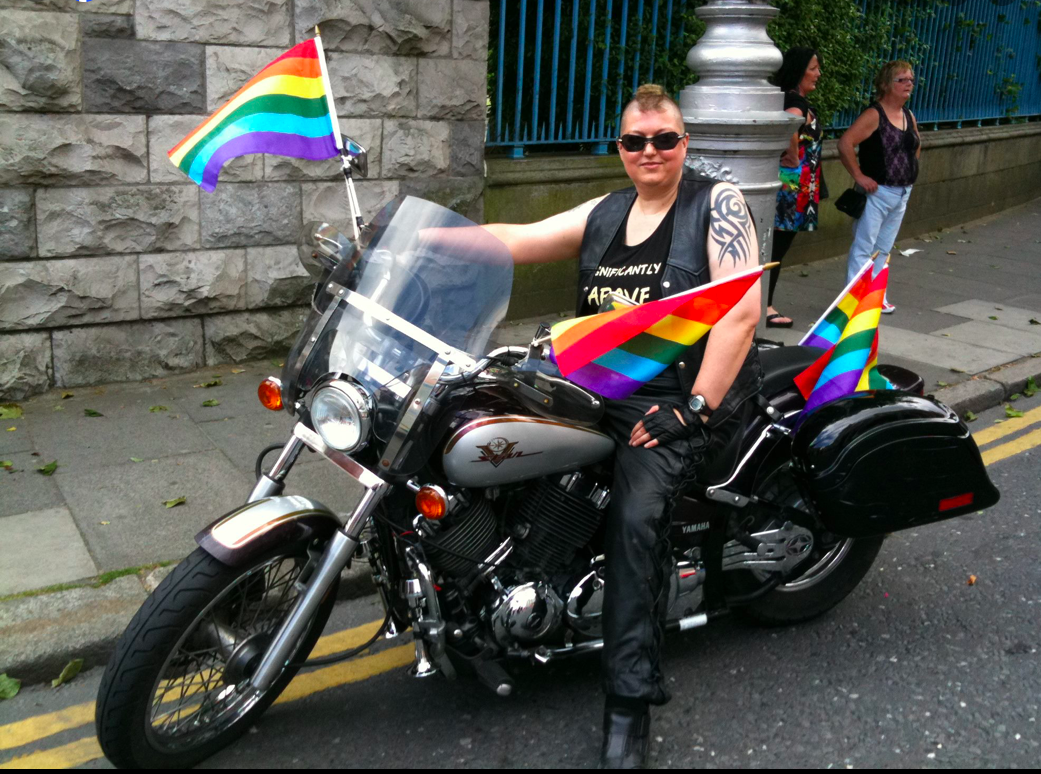
I realised my depression had been on and off because who can possibly live their best life if they are not living as their authentic self?
Despite being committed to my recovery, I still suffered from depression on and off. I have had many, many days in my life where I have been unable to get out of bed. I have dealt with those dark thoughts many times. It is true that, when in that space, your brain can be telling you that the world, your family and friends are better off without you and they won’t even really miss you that much at all.
Suicidal thoughts are not actually about dying, they are about not hurting anymore, not feeling the way you are anymore, and possibly being just exhausted from getting by day-to-day or even minute-to-minute.
It took two decades but I got to the point in my early 40s where I had to face it and come out as trans. As I’d heard in my addiction meetings: “When the pain of change becomes less than the pain of staying the same, we change”.
The pain of not facing it was just too great. So seven years ago, I came out as transmasculine, non-binary (someone assigned female at birth whose gender identity is masculine but not necessarily male).
At first I felt like I was riding high on a hot air balloon — I now knew who I was, my life finally made sense. I realised my depression had been on and off because who can possibly live their best life if they are not living as their authentic self?
Health system ‘hopeless’ for trans people
Then I entered the health system as a trans person. Lack of knowledge and services and repeated rejection letters for health services such as surgery brought me crashing down. I finally knew who I was, but there seemed to be no hope of becoming that person.
When hope is taken away, one is literally left hopeless.
The first rejection letter for top surgery (double mastectomy and chest masculisation) was from the nearest public plastic surgery unit, which said it was due to lack of resources.
For the first time in my entire life I could nearly see me — the real me, the person I was always supposed to have been.
The advice on the Ministry of Health website was that local hospitals should be doing top surgery within their existing budgets. But trans masculine people seeking top surgery go into a funding pool with people with breast cancer and we lose every time. I do not begrudge cancer patients but believe there needs to be a separate funding pool for gender-affirming top surgery, as there is for genital surgery (albeit with an extremely long waiting list).
There is a lot of systemic transphobia. Many health professionals continue to operate from old, debunked schools of thought, such as being transgender is a mental illness. It isn’t and it never was.
These are the people who make decisions on whether they will fund gender-affirming surgeries or not. This is why they don’t get funded — it is not seen as important and legitimate health care.
Hospitals send people to other hospitals, including private, all the time for treatments they cannot provide. There are many plastic surgeons around New Zealand who can do gender-affirming top surgery but transgender people are not afforded the same treatment because the decision-makers do not want to spend the money on us. Yet we are citizens of New Zealand who are entitled to free health care, just like everyone else.
Five rejections in five years
For the first time in my entire life I could nearly see me — the real me, the person I was always supposed to have been — but the chest got in the way.
I had five rejection letters for top surgery over five years. Each time, I would have to deal with suicidal thoughts as my hope of becoming the person I now know I am was taken away. It was devastating.
What those rejection letters said to me was: “You are NOT important, you DO NOT matter”.
Over the years, with testosterone hormone replacement therapy (HRT), my body had masculinised. Body fat had redistributed from feminine areas like hips, buttocks and thighs to the belly, and my hairline receded to a male hairline.
|
|
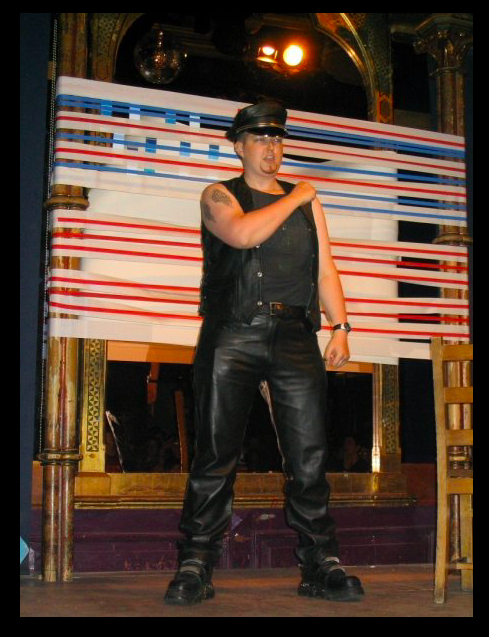 |
One nursing placement I was on required students to wear a smart, casual collared top rather than the student uniform top. While I was in a dressing room trying on a polo shirt and looking in the mirror, I just wanted to cry. For the first time in my entire life I could nearly see me — the real me, the person I was always supposed to have been — but the chest got in the way.
It was heart-breaking. Imagine being in your 40s and nearly being able to see yourself for the very first time.
The health system is actually really cruel. It will allow someone to start HRT, have masculinising physical changes (which in some cases includes the start of baldness) but still have breasts. This leaves one in limbo, neither this or that — an in-between person, feeling like a right freak and totally powerless to do anything about it.
For some, the sad reality is they can’t live like that anymore and they end their life. I have known four people who took their own lives and three of them were members of the rainbow community.
I, too, found myself in that dark place again, feeling hopeless.
It was then I decided to become a nurse to try and make the health system better for people like me. I didn’t realise it at the time but in making that decision, I was actually making an anti-suicide plan for myself as I knew I needed something in my life that was working towards a better future.
When I told my mum I was going to become a nurse, I said I could never see myself as a nurse previously because of its strong feminine image with a nurse in a female uniform — that was not me. But a transgender non-binary nurse — that I could see, because that is me.
Studying ‘confronting’
It was actually really confronting doing the nursing degree. Apart from some classmates rolling their eyes when I spoke up on transgender health in class, it was challenging learning about things like social determinants of health and seeing how these were stacked against me growing up.
On the second day of my nursing degree one lecturer said: “Put your hand up if you are here straight out of school.” Many people put their hand up. I was suddenly (and unexpectedly) overcome with grief. I sat there trying hard not to cry. I was totally overcome with grief thinking when I was their age, I didn’t stand a chance.
The health system . . . leaves one in limbo, neither this or that — an in-between person, feeling like a right freak and totally powerless to do anything about it.
I have endured verbal harassment and abuse countless times over the years for simply being in public with my partner. I have experienced hate crimes — in Ireland on the housing estate I lived on, a group of young men urinated through my mail slot into my hallway. That was one of the worst.
There is so much more I could write about homophobic and transphobic experiences but I will wrap it up for now.
This is my story and I share it freely to help people understand what we in the rainbow community face. Everybody has a story and others’ may differ — but the need for lift-up will be the same.
Unfortunately, mental health statistics for those in Aotearoa’s rainbow community remain shockingly bad. Research by Youth19 shows more than half transgender / gender diverse students report significant depression and self-harm.
More rainbow scholarships like the one just launched by the Universal College of Learning (UCOL) Te Pūkenga and Te Whatu Ora Midcentral would help someone have a better chance.
- After graduating from UCOL Palmerston North last year as a registered nurse (RN), Mel Meates works as a rainbow education facilitator at Palmerston North Regional Hospital and as an RN in aged care. Meates and UCOL nursing senior lecturer Trish Morison also presented gender and sexual diversity workshops for the Nursing Council which has now included the promotion of diversity, equity and inclusion as a priority in its strategic plan.
- A glossary of gender diverse and transgender terms can be found here.


